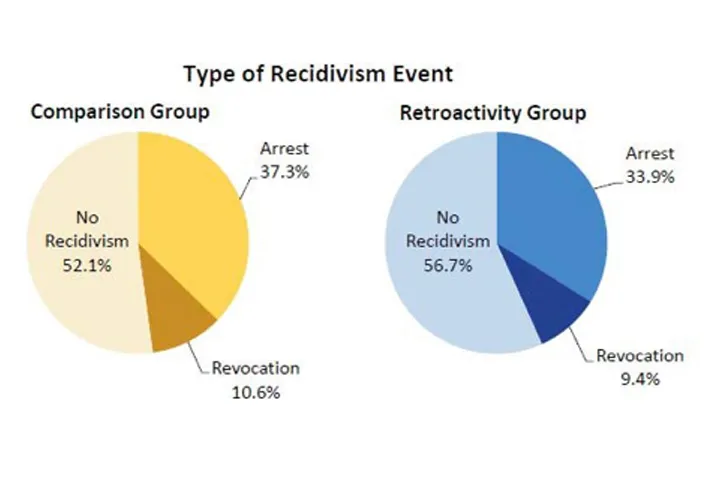
The U.S. Sentencing Commission recommended on July 18 to retroactively apply lower drug guideline ranges for previously sentenced offenders. In 2007, the Commission also amended, then made retroactive, the sentencing guidelines for offenses involving crack cocaine. What happened to the offenders who received shorter sentences under the retroactively applied 2007 Crack Cocaine Amendment? A study by the U.S. Sentencing Commission found out.
For the study, all available criminal records were reviewed for 836 offenders released during the period July 1, 2008 through November 30, 2008, in accord with the 2007 Crack Cocaine Amendment. The amendment reduced by two levels the base offense levels assigned by the Drug Quantity Table for each quantity of crack cocaine. Judges were allowed to consider motions for the retroactive application of the amendment and reduce sentences of those incarcerated under the previous guidelines. A comparison group consisted of a random sample of 483 similarly situated crack cocaine offenders released too early to benefit from the retroactive application of the amendment. All in this comparison group had served their full terms.
The USSC study found that retroactive sentence reductions did not result in higher recidivism rates. The offenders in the two groups re-offended at similar rates. The ratio of new arrests to revocations was comparable and the time period within which offenders in both groups re-offended also was similar, with the recidivism rate for both groups climbing steadily throughout a five-year period. There was no statistically significant difference in the recidivism rates of the two groups. The complete study is available online.
Subscribe to News Updates
Subscribe to be notified when the news section is updated.
